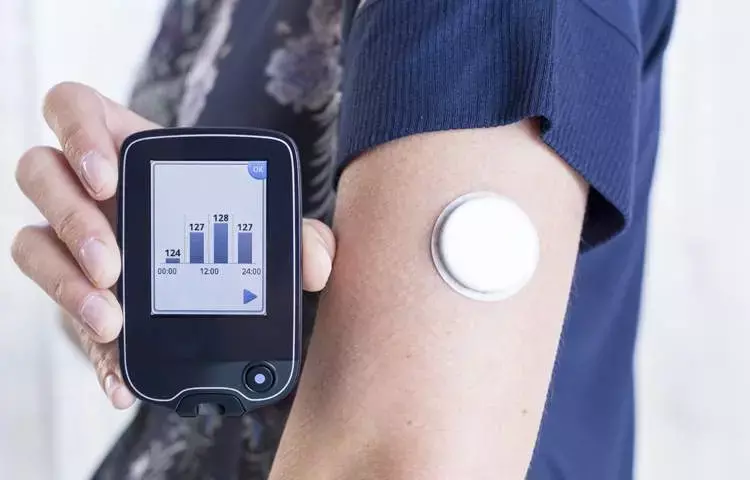- Home
- Medical news & Guidelines
- Anesthesiology
- Cardiology and CTVS
- Critical Care
- Dentistry
- Dermatology
- Diabetes and Endocrinology
- ENT
- Gastroenterology
- Medicine
- Nephrology
- Neurology
- Obstretics-Gynaecology
- Oncology
- Ophthalmology
- Orthopaedics
- Pediatrics-Neonatology
- Psychiatry
- Pulmonology
- Radiology
- Surgery
- Urology
- Laboratory Medicine
- Diet
- Nursing
- Paramedical
- Physiotherapy
- Health news
- Fact Check
- Bone Health Fact Check
- Brain Health Fact Check
- Cancer Related Fact Check
- Child Care Fact Check
- Dental and oral health fact check
- Diabetes and metabolic health fact check
- Diet and Nutrition Fact Check
- Eye and ENT Care Fact Check
- Fitness fact check
- Gut health fact check
- Heart health fact check
- Kidney health fact check
- Medical education fact check
- Men's health fact check
- Respiratory fact check
- Skin and hair care fact check
- Vaccine and Immunization fact check
- Women's health fact check
- AYUSH
- State News
- Andaman and Nicobar Islands
- Andhra Pradesh
- Arunachal Pradesh
- Assam
- Bihar
- Chandigarh
- Chattisgarh
- Dadra and Nagar Haveli
- Daman and Diu
- Delhi
- Goa
- Gujarat
- Haryana
- Himachal Pradesh
- Jammu & Kashmir
- Jharkhand
- Karnataka
- Kerala
- Ladakh
- Lakshadweep
- Madhya Pradesh
- Maharashtra
- Manipur
- Meghalaya
- Mizoram
- Nagaland
- Odisha
- Puducherry
- Punjab
- Rajasthan
- Sikkim
- Tamil Nadu
- Telangana
- Tripura
- Uttar Pradesh
- Uttrakhand
- West Bengal
- Medical Education
- Industry
CGM bests traditional self-test method for controlling blood sugar in type 1 diabetes patients

China: A recent study has found continuous blood glucose monitoring to be associated with lower blood glucose levels compared to the traditional blood glucose self-test method. The findings, published in Computational and Mathematical Methods in Medicine imply that CGM is a better method for monitoring blood glucose in type 1 diabetes (T1D) patients.
The authors suggest that T1D patients, particularly those with poor diabetes control should use CGM than self-monitoring of blood glucose (SMBG) in blood glucose monitoring. This meta-analysis showed significant improvement in HbA1c percentage points with the strongest noticed for adjunctive CGM. Time-in-range increased for CGM especially with non-adjunctive CGM.
Further the use of CGM improved glycaemic outcomes; the greater improvement for TIR was noticed with the newer non-adjunctive CGM technology.
The meta-analysis was conducted by Yeling Wang, Department of Radiotherapy, The First Affiliated Hospital of Hainan Medical University, Haikou, Hainan, China, and colleagues with the objective to evaluate the effectiveness of different glucose monitoring methods on blood glucose control and the incidence of adverse events among type 1 diabetes patients.
For this purpose, the researchers searched the online databases to obtain relevant research literature. The selected studies were analyzed and evaluated. To statistically analyze all the data, Cochrane software RevMan5.4 was used. The meta-analysis included a total of 15 studies, including 10 randomized controlled trials and 5 crossover design trials consisting of 2071 patients.
Based on the study, the researchers reported the following:
- Meta-analysis results showed that continuous blood glucose monitoring (CGM) could significantly reduce the HbA1c level of patients, weighted mean difference (WMD) = −2.69 compared with self-monitoring of blood glucose (SMBG).
- The incidence of severe hypoglycemia in the CGM group was significantly decreased, risk ratio (RR) = 0.52.
- There was no statistical difference in the probability of diabetic ketoacidosis between CGM and SMBG groups, RR = 1.34.
The researchers conclude by saying that, "continuous blood glucose monitoring is associated with lower blood glucose levels than the traditional blood glucose self-test method."
"This study promotes the management of patients with type 1 diabetes by evaluating the effectiveness of CGM and providing a reference for current and future related research."
Reference:
Wang Y, Zou C, Na H, Zeng W, Li X. Effect of Different Glucose Monitoring Methods on Bold Glucose Control: A Systematic Review and Meta-Analysis. Comput Math Methods Med. 2022 Jun 18;2022:2851572. doi: 10.1155/2022/2851572. PMID: 35761839; PMCID: PMC9233597.
Dr Kamal Kant Kohli-MBBS, DTCD- a chest specialist with more than 30 years of practice and a flair for writing clinical articles, Dr Kamal Kant Kohli joined Medical Dialogues as a Chief Editor of Medical News. Besides writing articles, as an editor, he proofreads and verifies all the medical content published on Medical Dialogues including those coming from journals, studies,medical conferences,guidelines etc. Email: drkohli@medicaldialogues.in. Contact no. 011-43720751


